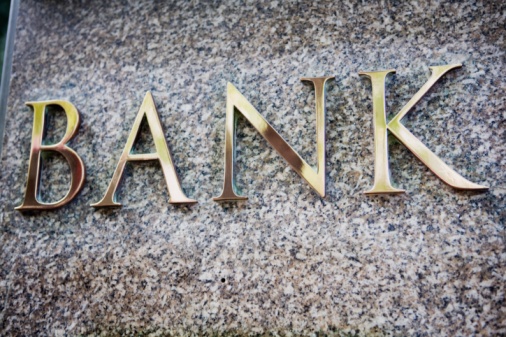Banking, finance, and taxes
Why Many Banks Need Fed Interest Rate Hikes Sooner Rather Than Later
Published:
Last Updated:
Low interest rates, or perhaps zero interest rates, may be good for consumers. They are not too great for savers, and if Goldman Sachs is correct, it is getting to be very bad for some of the big banks as well. One issue is that low rates are keeping banks from being able to earn more on their loans, and then there is the notion that their short-term cash earns nothing as well. Net interest margins are still expected to decline in the first quarter, and they could decline further ahead. Source: Thinkstock
Source: Thinkstock
24/7 Wall St. has evaluated which banks look the cheapest ahead of earnings next week, and this week’s call from Goldman Sachs does not bleed over massively with those same banks. Where the report gets interesting is the firm’s view of the worst case: in which no rate hikes at all come any time soon.
The banks that were mentioned in this week’s Goldman Sachs report that need the rate hikes to come sooner rather than later were BB&T Corp. (NYSE: BBT), KeyCorp (NYSE: KEY), Regions Financial Corp. (NYSE: RF) and Fifth Third Bancorp (NASDAQ: FITB). What stood out in the note was that these banks had discussed in their prior earnings reports that their forward assumptions were modeling in rate hikes in the middle of 2015.
Not all banks are at risk. Goldman Sachs sees Wells Fargo & Co. (NYSE: WFC) rather insulated from the low-rate environment. Maybe having all that mortgage business is better than the risks it could bring after all.
ALSO READ: Will Hudson City and M&T Finally Walk Away From the Merger?
It is one thing to see net interest margins drop for 2015, but if there is a scenario in which interest rates are not hiked in the coming quarters at all, then the outcome is worse for 2016. Goldman Sachs noted that the no-hike scenario could hurt bank earnings by as much as 9% in 2016, versus what is currently expected.
KeyCorp was given risk to 2016 earnings forecasts by as much as 16% under a no-rate-hike scenario. KeyCorp has a 1.8% yield, but it probably will increase, since the bank said the dividend would be under review.
One of the concerns is that banks have underperformed the broader market, and this rate hike delay risk is one of the likely issues. Other risks come from ever lower trading revenues ahead due to new regulations.
All the major money-center banks report next week, with many of the trust banks and regional banks noted here reporting in the following week. So, what do the consensus ratings indicate for these banks?
BB&T shares are near $39.00, and the consensus analyst price target of almost $42 compares to a 52-week trading range of $34.50 to $40.21. BB&T will yield almost 2.8%, based on its new dividend.
KeyCorp trades around $14.20 and has a consensus price target of $15.42. Its 52-week range is $11.55 to $14.74. KeyCorp likely will have a higher yield than the current 1.8%, but that is said to be under review.
Regions Financial trades at about $9.60, has a consensus price target of $10.59 and has a 52-week range of $8.59 to $10.96. Its dividend will be up at 2.5%.
ALSO READ: UBS Says Top Global Banks to Buy Now All in the U.S.
Fifth Third is trading close to $19.20, and it has a consensus price target of $21.29. Its 52-week range is $17.14 to $22.70. The regional bank currently yields close to 2.7%, and the yield will be 2.9% after the hike takes effect.
Wells Fargo is the big kahuna here, effectively worth more than these other four combined. Shares are near $54.00, and consensus price target is $57.19. Wells Fargo’s 52-week range is $46.44 to $56.29. It has north of a 2.75% dividend yield, after the coming hike.
Finding a qualified financial advisor doesn’t have to be hard. SmartAsset’s free tool matches you with up to 3 fiduciary financial advisors in your area in 5 minutes. Each advisor has been vetted by SmartAsset and is held to a fiduciary standard to act in your best interests. If you’re ready to be matched with local advisors that can help you achieve your financial goals, get started now.
Thank you for reading! Have some feedback for us?
Contact the 24/7 Wall St. editorial team.